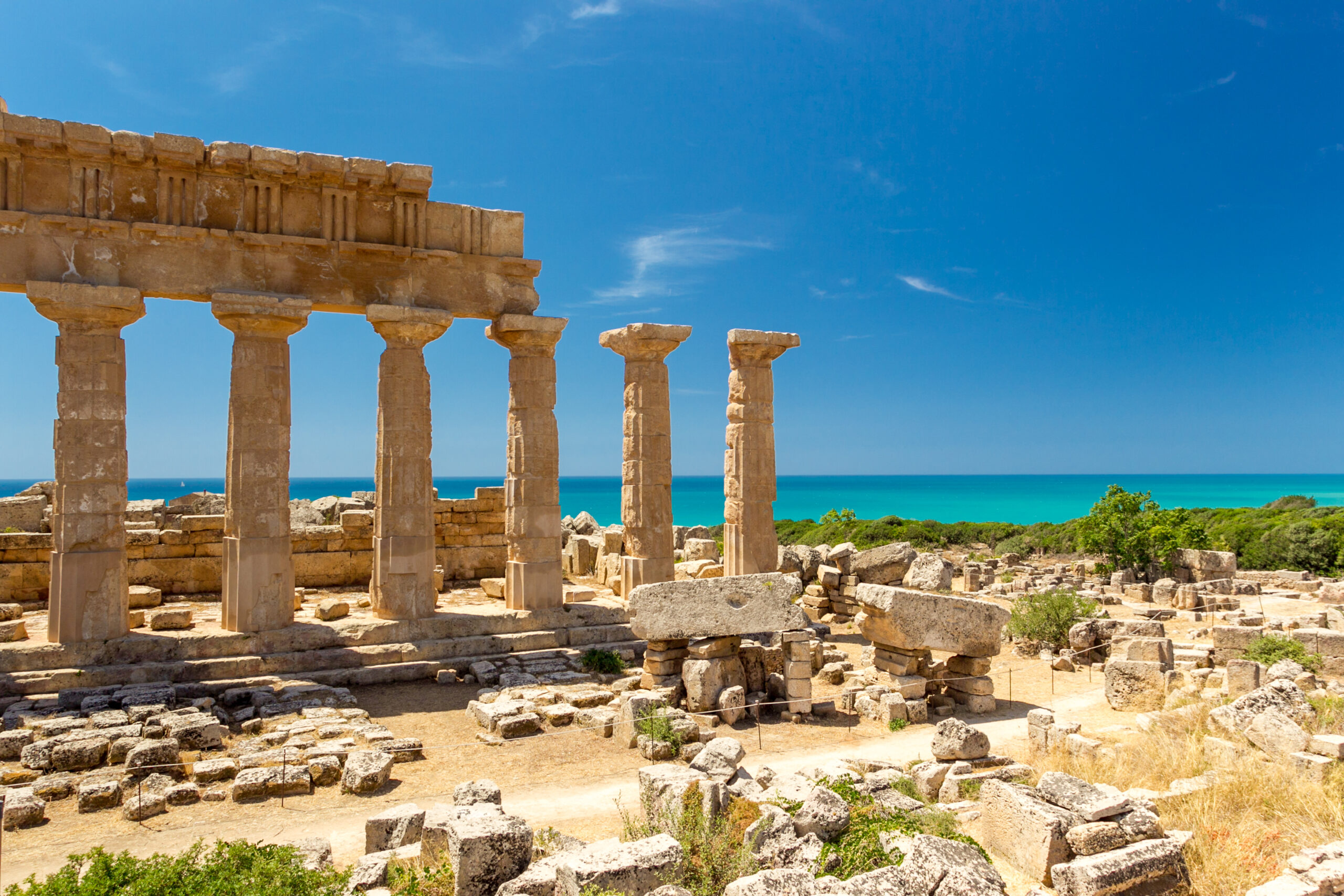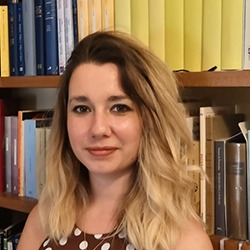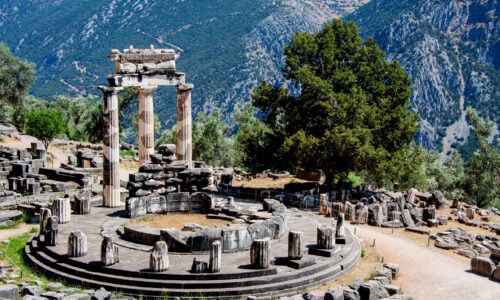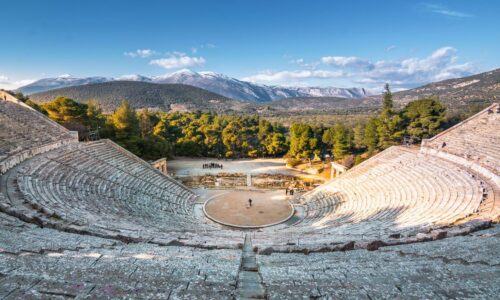Ancient Greek
- Home
- Courses
- Ancient Greek
- Ancient Greek 1 – Telematic
Ancient Greek 1 – Telematic
Admission No pre-requisite is requested. Objectives Understanding of an Ancient Greek text, without using the dictionary In-depth knowledge and active …
Overview
Admission
No pre-requisite is requested.
- Understanding of an Ancient Greek text, without using the dictionary
- In-depth knowledge and active use of all the most fundamental structures of Greek syntax and grammar
- Knowledge of the 1500 most frequent words in Greek classical literature
Program
Through the reading of texts in Ancient Greek, which are designed to encourage language learning, students deal with literary classical Greek (Attic Greek, V century b.C.) morphology, syntax and phraseology. Lessons will be held completely in Ancient Greek: following the fundamentals of the inductive-contextual methodology, the active use of Greek language both by the students and the teacher turns passive learning into an active competence, thus ensuring a sound knowledge of the language. Readings of some original Greek texts complete the course program. See the program in details
The course consists in 50 video-lessons, which are available on demand according to the student’s needs: at the time of purchase, the student will receive a link through which she or he will be able to view the video-lessons until the expiration of the link itself. Together with the video-lessons, the course provides the chanche to take individual lessons with a teacher. Lessons (of 60 minutes each) are held on Zoom or Skype. Thanks to the guide of the teacher, students may have the opportunity to clear their doubts, make questions or make exercises, according to their needs. The IISC suggests to make use of the individual lessons, after having viewed the chapters 2, 4, 8, 11 and 16 of the video course. However, students are free to schedule lessons with the teacher any time they feel it would appropriate (within the number of lessons purchased: any additional lessons can be purchased separately). Students may require lessons whenever they want (excluding the months of July and August), scheduling the day and hour according to their preferences, writing to info@iisc-edu.com.
CONTINUE STUDYING WITH US
Upon the completion of the course, students may access the course Ancient Greek 2 or Ancient Greek 2 Telematic.
| Fees | Standard availability of the videos | Renewal fees | |
| Complete course (50 video-lessons) + 5 individual lessons | € 359 | 10 months | € 249 |
| One chapter | € 30 | 1 month | € 20 |
1. M. Balme – G. Lawall – J. Morwood, Athenaze, Book I: An Introduction to Ancient Greek, Revised Third Edition, Oxford University Press
2. M. Balme – G. Lawall – J. Morwoodi, Athenaze, Workbook I: An Introduction to Ancient Greek, Revised Third Edition, Oxford University Press
Recommended readings (the following texts are not required for the course, but are recommended for those who wish to strengthen their knowledge):
1. W. H. D. Rouse, A Greek boy at home, Blackie & Son (see the link)
2. E. Minguzzi, Imparare il greco. Grammatica e lessico di base, Cortina
3. G. Cauquil – J. Y. Guillaumin, Lessico essenziale di greco (a cura di F. Piazzi), Cappelli
4. P. Saffire – C. Freis, Ancient Greek alive, University of North Carolina
– Students who have attended at least 75% of class hours may obtain a course completion certificate.
– Those who wish to obtain university certifications (6 CFU/ECTS) should pass the final exam with an evaluation fo at least 18/30. The exam will consist in a written test structured as follows: (a) grammatical competences, (b) comprehension of a written text, (c) production of a written text.
Because of an agreement between the Italian Institute of Classical Studies (IISC) and the Classics Faculty of the Pontifical Salesian University (UPS) – whose titles are recognized by Italian universities – the credits issued at the IISC are automatically aknowledged for the students enrolled at the UPS and may be validated at the Italian universities (without prejudice to the discretion granted to the universities by the Italian law).
The course is also recognized by the MIUR – Regional School Office for Lazio as valid for the professional training of teaching staff.
Instructor
Flavia Farina teaches Philosophy and Theory of Action in the Antiquity at the Roma Tre University.
She was visiting scholar in Philosophy at the Oxford University. She was a Post-Doc research fellow for the PRIN Project “Ethics and Technology“. She earned, with honors, a PhD in Ancient Philosophy (Roma Tre – Tor Vergata / Sorbonne Université). She graduated with honors in Philosophical Sciences (Roma Tre University).
She has written papers both in national and international journals, such as “Degrees of Culpability and Voluntary Actions” (Elenchos), “Gli eph’hemin e l’unidirezionalità degli abiti – una conciliazione possibile tra le Etiche di Aristotele” (Méthexis), “Aristotle on (second) nature, habit and character” (R. Chiaradonna, F. Farina – Routledge).
She mainly deals with Aristotle, ancient ethics and Hellenistic Greek.
You May Like
Ancient Greek Conversation and Composition 1
- Dates and times: Monday 4:45-5:30 pm (November-May)
- Teaching method: in presence and online (live streaming)
Admission The only prerequisite is the knowledge of the Ancient Greek alphabet. The course is strongly recommended to the students …
Ancient Greek 1 – Online
- Dates and times: Wednesday 6:00 - 7:30 pm (October-May)
- Teaching method: online (live streaming)
Wherever you are and at any time, you can always find a bit of the Ancient Greeks in the world you live in and...
Latin 1 – Telematic
- Dates and times: always available on demand
- Teaching method: video-lessons + individual lessons
Admission No pre-requisite is requested. Objectives Understanding of a Latin text (even of high difficulty), without using the dictionary In-depth …

- Teaching method: recorded video-lessons + individual lessons
- Schedule: always available on demand
- Duration: 21 hours
- Structure: 50 video-lessons
- Titles released: 6 CFU / ECTS + Teachers’ updating, recognized by the MIUR
- Language Ancient Greek
- Academic fees: from € 30 up to € 359




